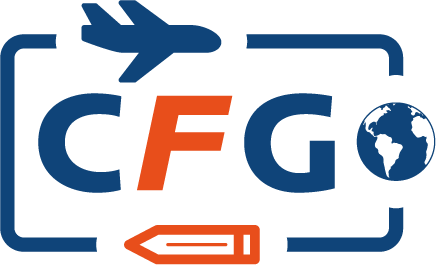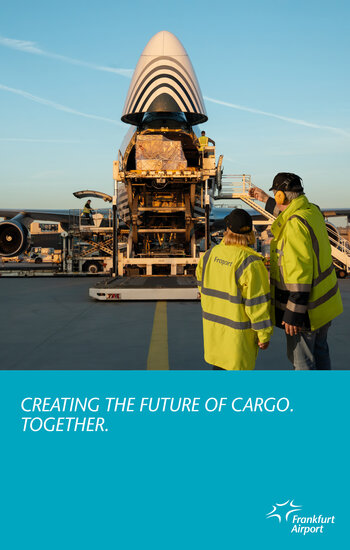It’s time for the air cargo world to embrace a new acronym (and consider how it can benefit from getting involved): ‘OLF’. What may sound like a cute Scandinavian mascot is, in fact, a pioneering approach to facilitating the digitalization of the logistics industry. OLF stands for Open Logistics Foundation. What is it? Why did it come about? And how it is pioneering?

To answer the last question first: OLF is pioneering, because it functions a little like Robin Hood did. The idea, however, is not so much to ‘steal from the rich to aid the poor’, but instead magnanimously offer the open source of solutions developed by a community of experts (often fueled by more generous digitalization budgets from larger companies), for free to anyone, anywhere, via the OLF Open Logistics Repository platform. It can then be used however the person/company wishes, to develop their own products and solutions – even for commercial use, if so desired.
What is the OLF?
The Open Logistics Foundation (OLF) is a non-profit, independent foundation which was originally established in OCT21 in Berlin by four main founders – all leading logistics companies: Dachser, DB Schenker, duisport, and Rhenus, together with support from the Fraunhofer Institute for Material Flow and Logistics. Headquartered in Dortmund, Germany, the OLF is governed by a Board of Directors, which serves as its executive body and external representation. It also has a Board of Trustees made up of industry leaders and experts from foundation’s founding and member organizations. OLF’s day-to-day operations and coordination are managed by a Head Office team, led by Managing Director, Andreas Nettsträter, and COO, Carina Tüllmann. Their team is made up of professionals specializing in logistics, IT, project management, communications, and administration, who support members, facilitate working groups, and ensure smooth operations.
Currently, more than 50 companies in over a dozen countries are members of the foundation. These range from large logistics companies to SMEs. They all actively participate in working groups, steering committees, and project development, with the goal of shaping the foundation’s direction and open source solutions.
Where collaboration becomes innovation
So, why does OLF exist in the first place? It was born from the original pain point that developing IT solutions is often expensive, may only solve part of the problem because of the company’s limited role in the supply chain, and interfacing to other systems is frequently highly complex. Added to this, the fact that logistics companies mostly face the same problems, so rather than create a number of very similar yet individual solutions, it makes more sense for all involved stakeholders to pitch together, share ideas, and develop a solution as a community. OLF’s collaborative approach brings the industry together and results in greater innovation, reduced development costs, a far more usable product (which is made freely available to all stakeholders), and it does away with ‘vendor lock-in’, whereby companies are bound to certain software providers and tools which may or may not move with the times. OLF’s core mission as a neutral, community-driven platform, therefore, is to accelerate digitalization in logistics and supply chain management through open source solutions and the creation of de facto digital standards.
From road to air cargo
What started out tackling road transport issues in 2021, has now been augmented to include air cargo challenges. In fact, the Open Logistics Foundation formally launched its air cargo activities last year, already, when it partnered with IATA on the development of the NE:ONE server project. NE:ONE, as a foundational infrastructure for air cargo data exchange, first came into play at the MAR24 IATA Hackathon in Shenzhen. OLF also took part in the IATA ONE Record Hackathon in Dublin, in FEB25, as well as being present at the World Cargo Symposium in Dubai, in APR25, and now at the transport logistic in Munich, earlier this month.
An example of collaborative success
While the Air Cargo Europe took place in Halls A1 and A2, the OLF panel on 05JUN25, took place in Hall A3, and deserved better attendance and more awareness than it seems to have so far in our industry. It showcased the launch of the eCMR (electronic consignment note that is used in road transport as a digital version of the carriage of goods document – the road equivalent to the air waybill) – the result of 28 OLF member companies working together. As OLF states: “developed by companies, for companies”. Not only is the solution now freely accessible to everyone under an open source license, but it is also completely legally compliant (OLF takes care of certification and security), fully interoperable, and suitable for companies of all sizes.
“The development of the eCMR has the potential to show how the entire industry can benefit when we work collaboratively,” said Markus Sandbrink, CIO at Rhenus. “Open source is about creating added value by enabling widespread adoption.”
“The new eCMR standard shows that open source simplifies entry into digitalization and drives standardization of commodities across digital value chains,” Stefan Hohm, CDO at Dachser, added.
One solution, many potential applications
As discussed in the panel, the focus when developing the solution, was mostly on the user experience – the aim was a simple, common structure, easy to sign, and a process that allows for the signature to be legally binding. Also, common standards since truck drivers work with many different companies and the preference is therefore one solution rather than a multitude of differing processes. The solution that was developed for the eCMR as a result of mass collaboration, is now so fine-tuned that it can also serve as a blueprint for all kinds of other electronic document processes.
Further benefits: OLF guarantees the quality and security of its open source tools and maintains neutrality in their development, fostering trust and widespread participation. It also offers training and guidance to help companies integrate and benefit from open source solutions.
Get involved
The Open Logistics Foundation is transforming logistics by making digitalization accessible, collaborative, and standardized. Its open source approach enables companies to innovate, connect, and compete more effectively in a rapidly changing industry landscape. For air cargo, the benefits are manifold – cargo communities may collaborate with OLF for quicker, robust solutions. Software providers have access to products that have already been thought through and can build on these. Interns can adopt and expand existing solutions for any niche problems they may be researching, and the open source platform may encourage tech talent to enter the industry. There are working groups currently tackling all kinds of industry pain points from customs to electronic transport documents, to track & trace issues, digital air cargo, and decarbonization enablement, for example. More details can be found on www.openlogisticsfoundation.org
IATA’s ONE Record Engagement Manager, Arnaud Lambert, summarized the benefits of OLF in the newest edition of OLF magazine: “Open source enables us to master digital transformation, even with limited IT capabilities, and to advance networking, standardization, and automation with greater momentum. When industry players collectively develop open source software that is freely available to all, we can succeed in overcoming the industry’s fragmentation.”




